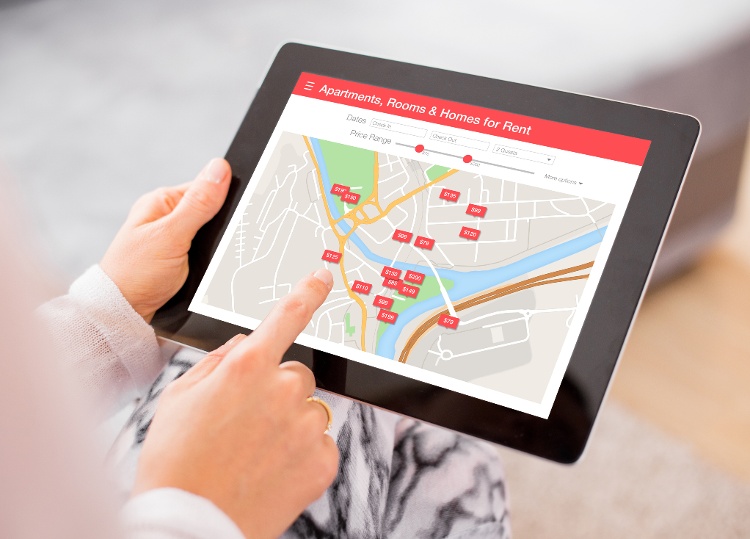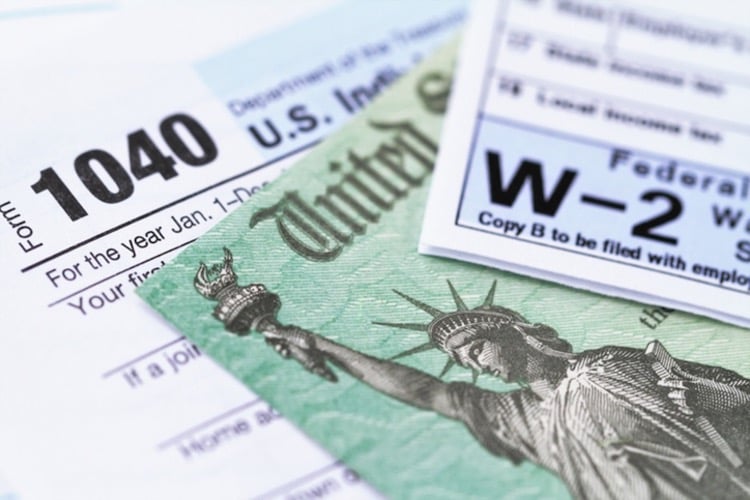Most people are familiar with the process for selling a property in the same state, but what happens when a seller and a property are in two different states?
In this article, we’ll explain common reasons for selling out of state, discuss 3 options for selling out of state property, and take a look at the possible tax consequences when a property is sold in a different state and how to minimize them.
Key takeaways
- People who sell out of state property include remote real estate investors, next-of-kin who inherit a property, and owners relocating to a new job before they have the time to sell.
- Three options for selling out of state property are Roofstock, listing with a traditional real estate agent on the MLS, and for sale by owner (FSBO).
- Capital gains and state taxes are two potential tax liabilities when selling out of state property.
- Strategies for minimizing or eliminating taxes on an out of state property sale include conducting a 1031 exchange or using the home as a primary residence.
Why is property sold out of state?
There are a number of reasons why property gets sold in a different state from where an owner lives. Some of the most common include:
- Real estate investor who owns rental property remotely decides that the time is right to sell.
- Executor of an estate is responsible for selling an out of state property.
- Next-of-kin who inherited property is not interested in being a long-distance landlord.
- Parents or a loved one may be moving into a senior living facility and the children need to sell.
- Change in family status such as a marriage or divorce when one spouse lives somewhere else.
- Relocating to a new job in another state with no time to sell before making a move.

Options for selling out of state property
Selling out of state property can occur more often than many people imagine. Here are 3 popular options for selling property out of state.
Roofstock
Roofstock is the #1 marketplace for buying and selling single-family investment properties. In less than 6 years, buyers and sellers have completed more than $4 billion in single-family rental transactions through the Roofstock Marketplace.
Selling an out of state property on Roofstock is easy. A seller pays a commission fee of just 3% or $2,500, whichever is greater, there are no open houses, showings, or stagings to deal with.If the property is rented, tenants can stay in place and a seller can keep earning rental income through closing.
Here’s how selling property out of state with Roofstock works:
- Submit a listing: A seller enters property information online and answers a series of questions, uploads property photos, and receives a free, no obligation price estimate based on the information provided.
- Roofstock Certification: Up-front due diligence to prepare a listing for sale is performed, such as ordering a title report and gathering key documents, to give a buyer the confidence to purchase a home sight unseen.
- Launch the listing: Roofstock creates an attention-grabbing listing for the property, including details, documents, and photos that are shared with hundreds of thousands of investors on the Roofstock Marketplace.
- Receive offers and close: The team at Roofstock helps manage the transaction completely online. After an offer is accepted, Roofstock coordinates the entire process for a timely, efficient closing.
A second option for selling out of state property on Roofstock is with the new Roofstock Offers program, designed for sellers who need to sell quickly and are looking for a cash offer. Transactions can close as quickly as 10-14 business days, there are no appraisal or financing contingencies to worry about, and the service fee is just 3%.
Learn more about Roofstock Offers
Real estate agent
Hiring a local real estate agent to list a property on the multiple listing service (MLS) is another way to sell an out of state property. An agent will take care of tasks such as staging the home, marketing the vacant home for sale on the MLS, conducting showings and open houses, and negotiating a purchase and sale agreement with a buyer or a buyer’s real estate agent.
With the possible exception of a seller paying to stage a home, a real estate agent will generally do all of these things in exchange for earning a real estate commission. A home seller generally pays the full commission for the services of both the seller’s and buyer’s agent (assuming the buyer is represented by a real estate agent). As this article from Realtor.com explains:
Buyer’s and seller’s agents typically split the commission. So if a home sells for $200,000 at a 6% commission, the seller’s agent and buyer’s agent might split that $12,000, and each receive $6,000.
However, the commission split varies from one agent to another, with new agents sometimes earning a smaller percentage of the commission than experienced agents who sell more homes or more expensive properties.
In some real estate markets a real estate agent may offer a flat listing fee. The agent will list the home on the MLS, but it’s up to a seller to coordinate showings, negotiate a purchase and sale agreement, and ensure that contract contingencies are met.
Typical contract contingencies may include the property appraising for at least the purchase price, obtaining financing agreeable to the buyer, or selling an existing home before closing on a new home. Sometimes a buyer may request that a seller make repairs, assist with closing costs, or both, before agreeing to close escrow.
For sale by owner
A third option for selling an out of state property is for sale by owner, or FSBO. This strategy for selling a home involves a seller listing a home for sale without the help of a real estate agent.
Benefits of a FSBO include having complete control over the listing price and marketing strategy, control over scheduling showings with buyers and their real estate agents, and paying less of a sales commission.
Selling as a FSBO means not having to pay a commission to a listing agent, because a seller is self-represented. In some cases, a for sale by owner may still pay a commission to the real estate agent who brings a ready, willing, and able buyer who purchases the home.
While a for sale by owner may save on a sales commission, FSBO homes typically sell for much less than agent-assisted home sales, according to this blog post from NAR. There’s also a lot of work involved for an owner selling a home out of state, including:
- Setting the right listing price by running comparables or paying for an appraisal.
- Preparing a home for sale and keeping it presentable by maintaining curb appeal, making repairs to keep the home in good conditions, and staging a vacant home.
- Marketing and advertising include tasks such as taking professional photos, creating an attention-grabbing listing description, and setting up a sign and passing out flyers.
- Being available to respond to buyer inquiries that may come in during the day, evenings, weekends, and holidays.
- Verifying that prospects allowed inside the home are actual buyers and not people who may put the safety of the home or neighbors in jeopardy.
- Making sure a buyer is qualified to purchase a home, such as asking for proof of funds for a down payment, and reviewing a pre-approval letter from a buyer’s lender.
- Some states also require the use of a real estate attorney to draw up a purchase and sale agreement, even when an owner is selling their own home.
Websites for listing a FSBO include Zillow, Trulia, For Sale By Owner, and FSBO.com.

How out of state property sales are taxed
There are two types of taxes to consider when a property is sold out of state:
Capital gains tax
Capital gains tax is paid on any profit made when an investment property that has been held for more than 1 year is sold. The tax rate on capital gains is 0%, 15%, or 20% depending on a seller’s tax bracket and filing status.
If a property is held for 1 year or less, short-term capital gains are treated as ordinary income and taxed at a seller’s ordinary income tax rate.
When a property sold out of state is a primary residence, a seller may qualify to exclude up to $250,000 in gain (or up to $500,000 if filing a joint return with a spouse), according to IRS Topic No. 701 Sale of Your Home.
State and local taxes
An investor may also be liable for paying taxes to the state an investment property is located in, and to the state where the investor resides.
For example, if an investor lives in California and sells an out of state rental property located in Arizona, taxes may be owed to both states. However, as a general rule, an investor will receive a tax credit for taxes already paid to one state when filing the annual tax return with the home state.
Tips for minimizing tax on a rental property sale
There are several strategies an investor may use to minimize or eliminate capital gains tax when selling out of state property:
- Primary residence: If a seller uses an out of state property as a primary residence for at least 2 of the 5 years prior to the sale date, the home may qualify for a capital gains tax exclusion. While this may be one option for eliminating capital gains tax, it may not be practical for an owner who can’t wait 2 years to sell.
- Inheritance cost basis adjustment: When a property is inherited the cost basis is “stepped up” to the current market value. Depending on how quickly an inherited property is sold, an heir may be able to minimize or even eliminate capital gains tax.
- 1031 tax deferred exchange: A real estate investor may defer paying capital gains tax on the sale of an out of state property by purchasing another replacement investment property within a specific period of time. An additional benefit of a 1031 exchange is that the property sold and the replacement property purchased do not have to be in the same state.









